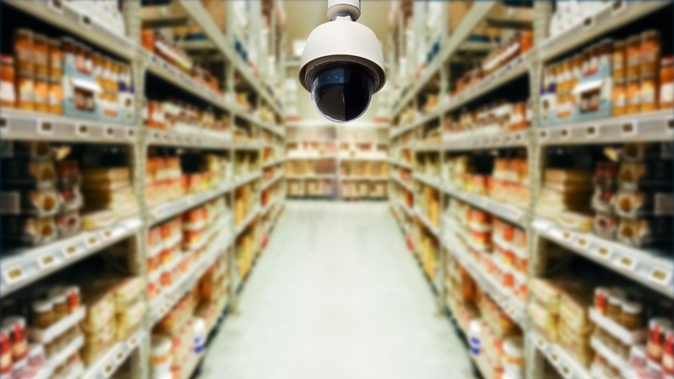
Security software used widely by retail staff is in the spotlight after an incident involving a former Green MP.
Golriz Ghahraman quit politics last year after being caught shoplifting from boutique fashion stores. News emerged this month suggesting she had done it again at Royal Oak Pak’nSave.
However, the former MP would not be charged and the store never reported the case to police. Yet given the incident was logged in the Auror security system, police were able to access it and they attempted to use it in the court case against Ghahraman.
NZ Herald senior writer David Fisher told The Front Page that security staff entered details of the shopping incident into Auror, a retail crime surveillance platform.
“It links retailers, like supermarkets, service stations, and big box stores. It boasts to have coverage of 90% or more of New Zealand retail spaces.
“So, details get entered into the system of retail crime incidents and it allows retailers to match incidents so that it improves the level of knowledge as to what crimes are occurring there. They also have the option to report it to police ... This is not to say police don’t have visibility across the Auror platform anyway, they do.
“As a direct result of that officer becoming aware of it, he sought to raise it with the High Court as a matter that should be considered as part of an appeal. But he was unsuccessful in doing so. Ghahraman was also unsuccessful in her appeal,” Fisher said.
The relationship between the privately owned retail surveillance network and the police is so close that documents held by the Herald show it referred to as a “partnership”.
A 2018 contract with Auror shows how police, who used the system hundreds of times a day, would have access to “information, images, and recordings of incidents and associated people and vehicles supplied by businesses”.
Fisher said the system has incredible capabilities – with information being logged about what people wear, what tattoos they might have and other distinctive characteristics.
“When you drive into a supermarket car park, your number plate has been captured. It can be tracked as to where it’s been in other areas that are also covered by the Auror network.”
Police misused the system when we were subject to Covid lockdowns, Fisher said, when trying to identify women believed to have breached the border and headed to Northland.
“The guardrails in place around police using the system were horribly inadequate. There’d been no real privacy assessment done or enacted. And that has been the Australian experience as well.
“It’s an issue that has been picked up by the Office of the Privacy Commissioner in New Zealand– which has work under way developing what it calls a ‘biometric code’. Biometrics is the gathering of personal identifying information that can or is used to track people.
“That could be information as simple as CCTV footage of the way that somebody walks. It’s not widely known, but your gait can be as much of an identifying feature as your face can. So, if CCTV is capturing people walking and then using the way in which they walk to then track them through subsequent CCTV cameras, that is biometric information,” he said.
Given Auror is a privately owned company, Fisher said, there needs to be some level of oversight.
“Development that happens within companies like Auror happens at a rapid pace and regulators need to work really, really hard to keep up with that.
“I’d like to see them be more directly open with the public about what they’re gathering and what they’re doing with it. I’d like to see Government more proactive in letting people know things.
“For example, you can go to NZTA [Transport Authority] and say you don’t want your name and address associated with your licence plate for companies like Auror to have access to,” he said.
“There’s a degree of choice the public has about how much we buy in or out of this, but there is not much information there to make the public aware of that.”
Listen to the full episodeto hear more about how Auror works.
The Front Page is a daily news podcast from the New Zealand Herald, available to listen to every weekday from 5am. The podcast is presented by Chelsea Daniels, an Auckland-based journalist with a background in world news and crime/justice reporting who joined NZME in 2016.
Take your Radio, Podcasts and Music with you









